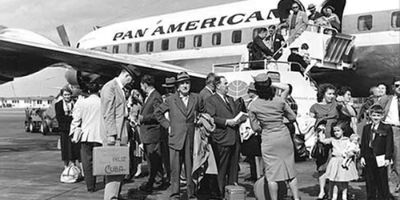26 lugl 1953 anni - Revolution: Castro guerrillas attack Cuban army bases, fail
Descrizione:
On July 26, 1953, a small group of young revolutionaries led by Fidel Castro attacked the Moncada Army Barracks in Santiago, Oriente Province, in an attempt to overthrow Batista.[11] The attack was unsuccessful, and Batista ordered that the rebels involved either be imprisoned or executed. Castro, along with other survivors of the Moncada attack, were not released from jail until May 15, 1955.Near the end of 1955, anti-Batista demonstrations and student rioting were frequent. The military police dealt with the opposition violently. Batista shut down the University of Havana after continued student opposition to the government. At least one student leader was killed by police.
Batista again suspended constitutional rights and put tighter censorship restrictions on what the media could report. The military police patrolled streets, picking up anyone suspected of being part of the insurrection. By the end of 1955, brutality and torture had become more frequent.
In 1956, Castro and his supporters set up camp in the Sierra Maestra mountains. Castro's guerrilla army raided isolated army garrisons in order to build up their stock of weapons and ammunition. They also took control of land and redistributed it among the peasants. In return, the peasants helped Castro's guerrillas against Batista's army; and some of the peasants, as well as students, joined Castro's movement. [12] Batista responded by sending more than 10,000 troops to the Sierra Maestra to find Castro and his guerrillas. Despite being outnumbered, Castro's forces scored a series of victories, aided by the corruption of Batista's leading army officers and large numbers of desertions.
During this period, the U.S. broke off relations with Batista, stating that a peaceful transition to a new government was necessary. The U.S. imposed an embargo preventing Batista from acquiring American arms. U.S. companies still had extensive business interests in Cuba at this time, and the unrest was damaging to these businesses.
Against this backdrop of a growing civil war, Batista, constitutionally prohibited from continuing as president, organized an election in which his preferred candidate Carlos Rivero Aguero defeated former president Grau. The situation, however, had deteriorated beyond repair. On New Year's Eve, Batista fled in the night; and on January 1, 1959, the regime collapsed after his departure. Castro's forces entered Havana one week later on January 8, 1959.
Aggiunto al nastro di tempo:
Data:
26 lugl 1953 anni
Adesso
~ 71 years ago
